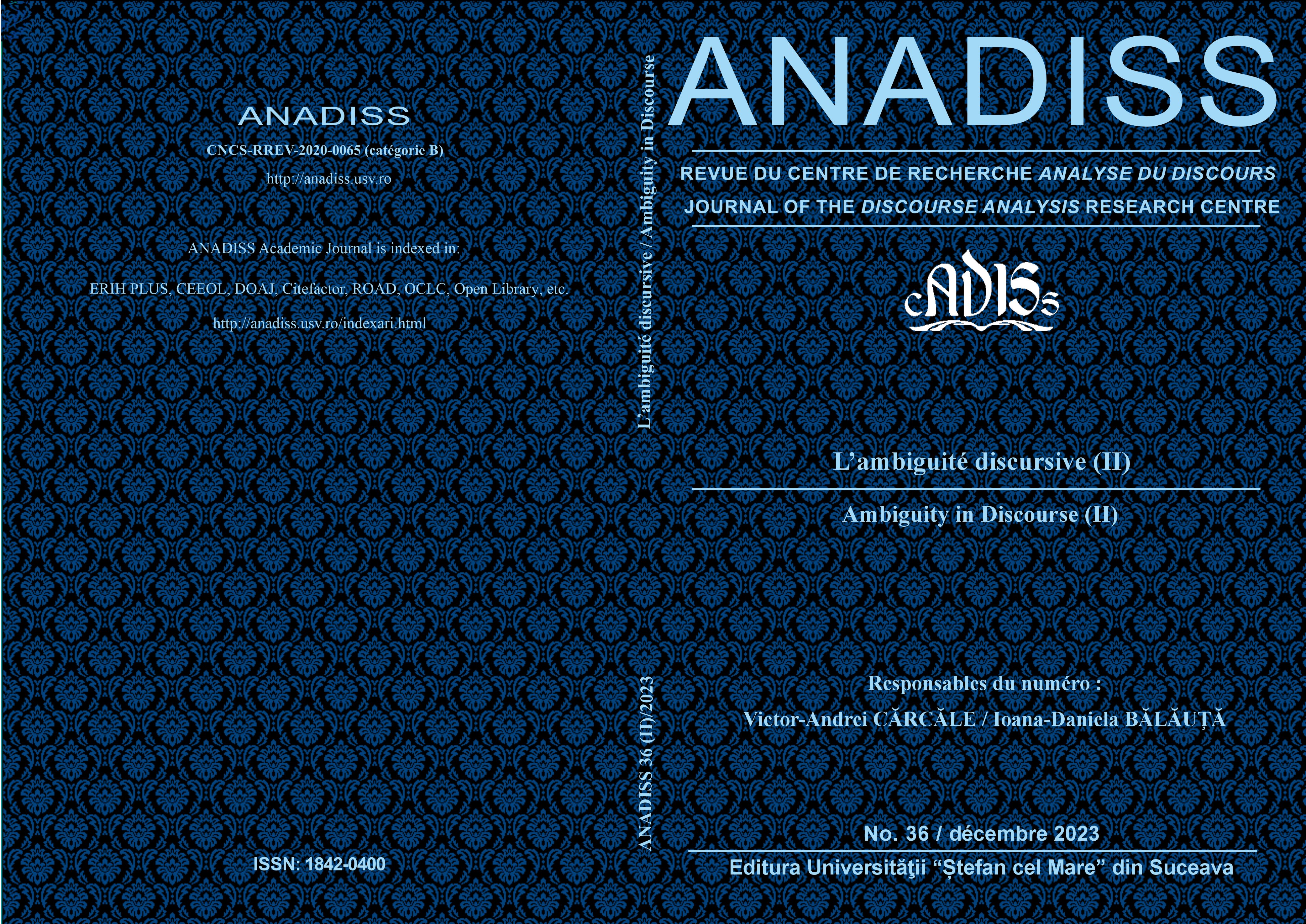CATHARTIC ALIENATION AND TEXTUAL CONSCIOUSNESS
CATHARTIC ALIENATION AND TEXTUAL CONSCIOUSNESS
Author(s): Mariana BaloşescuSubject(s): Language and Literature Studies, Philology
Published by: UNIVERSITATEA »ȘTEFAN CEL MARE« SUCEAVA
Keywords: consciousness; catharsis; mimesis; alienation; person;
Summary/Abstract: In this study, we problematized the relationship between personal consciousness, textual consciousness and discursive ambiguity through two ancient concepts: catharsis and mimesis. When the reader enters the cathartic state, the consciousness that speaks to him in the text unites with his own consciousness. Has a revealed communication been born? That is the question. It is not all textual consciousness that can generate cathartic communication in the reader's consciousness, but only the discourse that brings to the reader alienation from the concrete world and from one's own self, as an imitation of self-sacrifice by the self-forgetfulness. A form of self-abandonment is thus produced. Textual consciousness thus becomes a relative and transitory hypostasis of the reader's consciousness. Thus, at the moment of cathartic alienation, textual consciousness has a double manifestation, a double face. It has a subtle identity where the reader and the hero/voice of the text form an inseparable couple. Textual consciousness cannot exist outside of the reader and the reader cannot receive catharsis outside of the textual consciousness capable of producing it. In this participation/membership/collaboration, the discursive ambiguity is reduced more or less until it disappears. Cathartic communication appears to be revealed communication, but it is not. It’s a mimesis. An imitation of revealed communication. And revealed communication is only possible through union with the Holy Spirit. Personal consciousness then becomes a revealed consciousness, when the interior Master, Christ, speaks in it. Textual consciousness, the experience of textual communication, is however a mimesis, a preparation, an anticipation, a possible prefiguration of the communication revealed through this suspension of the self (cathartic alienation). But textual consciousness can never replace true revealed consciousness. It can, however, anticipate it and help the true personal conscience to learn to place its reason and its experience under the sign of a cathartic thought, which goes beyond rational-empirical thinking, but which is in no way a revealed thought, but an intuitive, empathetic and speculative thought.
Journal: ANADISS
- Issue Year: 19/2023
- Issue No: 36
- Page Range: 13-21
- Page Count: 9
- Language: English

